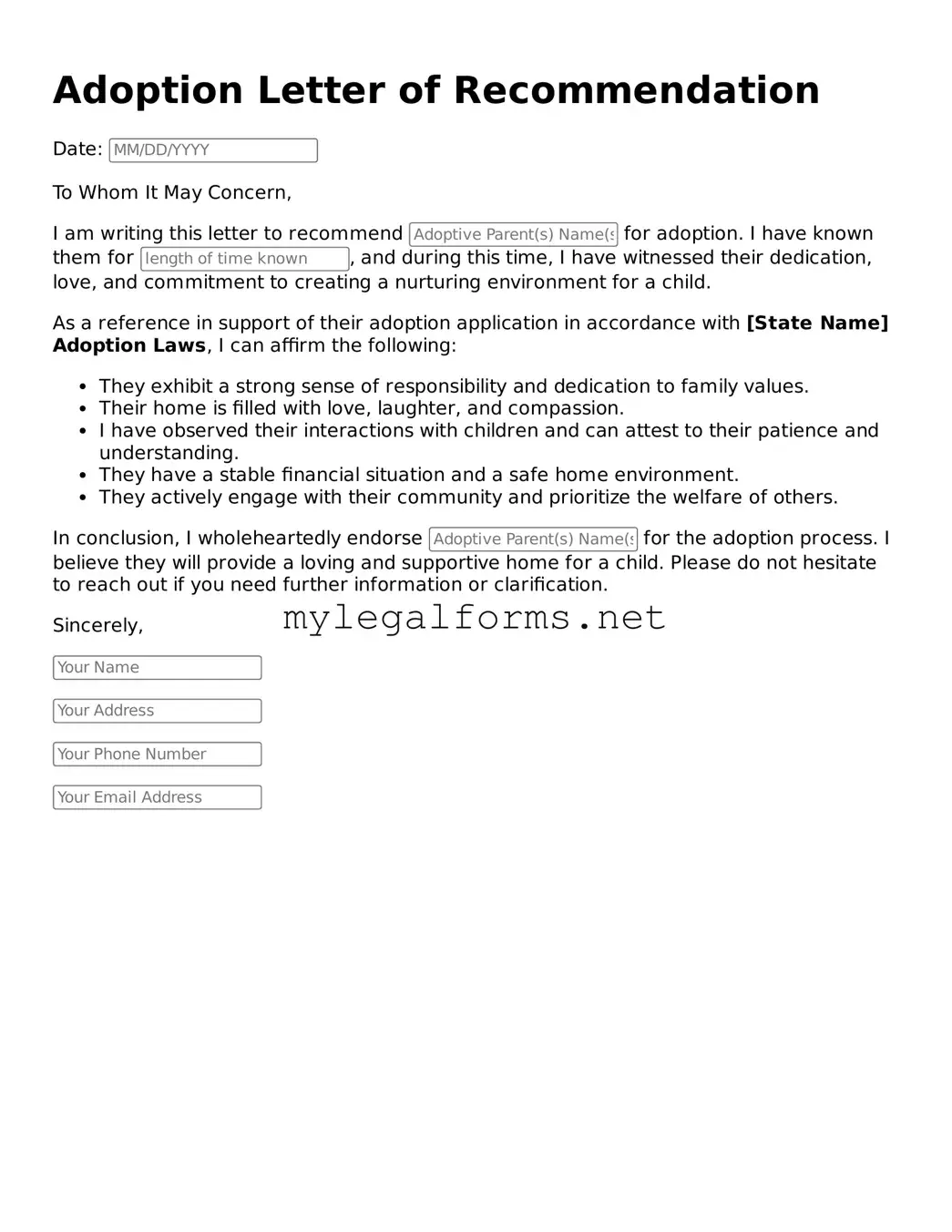Filling out an Adoption Letter of Recommendation form can be a crucial step in the adoption process. However, many individuals make common mistakes that can hinder their application. One prevalent error is failing to provide specific examples of the adoptive parents’ qualities. Instead of vague statements, it’s essential to illustrate traits with concrete instances that demonstrate their suitability for adoption.
Another frequent mistake involves neglecting to adhere to the form's guidelines. Each adoption agency may have specific requirements regarding the format, length, and content of the recommendation. Ignoring these instructions can lead to delays or even rejection of the application.
Additionally, some recommenders overlook the importance of honesty. While it may be tempting to embellish or exaggerate, providing an accurate portrayal of the adoptive parents is crucial. Agencies value authenticity, and any discrepancies can raise red flags during the review process.
Furthermore, failing to include personal contact information is another misstep. The agency may wish to follow up for further clarification or questions. Without this information, the recommendation may be deemed incomplete, potentially impacting the adoption process.
Another common error is writing the letter in a rushed manner. A thoughtful, well-structured letter reflects the recommender’s genuine feelings and observations. Taking the time to carefully craft the letter can significantly enhance its effectiveness.
Some individuals also forget to mention their relationship with the adoptive parents. Providing context about how long and in what capacity they know the applicants helps the agency understand the recommender's perspective. This detail adds credibility to the recommendation.
Moreover, using overly technical language can alienate readers. While it’s important to be articulate, the letter should remain accessible. Simple, clear language often conveys sincerity better than complex vocabulary.
Additionally, it’s not uncommon for recommenders to fail to proofread their letters. Typos or grammatical errors can detract from the overall message. A polished letter reflects the seriousness of the recommendation and the importance of the adoption process.
Some people may also forget to express enthusiasm for the adoption. A recommendation should convey genuine support and excitement for the prospective parents. This emotional element can significantly impact how the agency perceives the applicants.
Lastly, neglecting to submit the letter on time can be detrimental. Each adoption process has timelines that must be adhered to. Late submissions may cause unnecessary complications, potentially delaying the adoption journey for the family.

